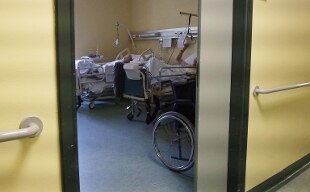- RSA, 'Denuncia Day' in Bergamo. Relatives Covid victims from pm: "We want the truth"
Share
17 June 2020From the lack of personal protective equipment (DPI) to poor information on procedures for the containment of infections, from the shortage of drugs, to the absence of healthcare personnel, up to the difficulties in isolating patients with Covid-19 or performing swabs . These are the main difficulties encountered by residential and social-health structures (RSA) at the beginning and in the most difficult moments of the pandemic. At least according to the final report of the survey conducted by the Higher Institute of Health in collaboration with the National Guarantor of the rights of persons detained or deprived of personal liberty on the Covid-19 infection in the RSA.A total of 1356 facilities answered the questionnaire, equal to 41.3 percent of those contacted, who reported data referring to the period from February 1 to April 30, 2020. On average, 2.5 doctors, 8.5 nurses were present in the RSA and 31.7 SDGs (socio-health workers) by structure. About 11 percent of the facilities said they did not have doctors working in the facility among the professional figures involved in the care. Overall, considering the three professional figures, there are on average 42.4 operators per structure. On average, 74.8 beds have been reported per facility, with a range from 8 to 667 beds. The 1356 facilities reported a total of 97521 residents on February 1, 2020, with an average of 72 residents per facility.
Of the 9154 subjects who died, 680 tested positive for the swab and 3092 had flu-like symptoms. In summary, 7.4 percent of the total deaths affected residents with SARS-CoV-2 infection and 33.8 percent affected residents with flu-like manifestations who were not swabbed .
The peak of deaths was found in the period 16-31 March. Of the 1259 structures that answered the question relating to the difficulties encountered, 972 (77.2 percent) reported the lack of Personal Protective Equipment at the time of completing the questionnaire, while 263 (20.9 percent) reported a scarcity of information received regarding the procedures to be carried out to contain the infection. In addition, 123 (9.8 percent) facilities report a lack of medications, 425 (33.8 percent) the absence of healthcare professionals and 157 (12.5%) difficulties in transferring Covid-19 affected residents to hospital facilities. Finally, 330 facilities (26.2 percent) report having difficulty isolating residents affected by Covid-19 and 282 have indicated the impossibility of having the swabs performed.

